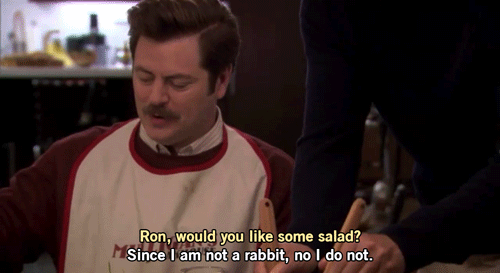Best Branded Content- American Heart Association Video
Posted in Insights
Playing with your audience can be risky. When you produce content specifically to be ironic or sarcastic, you run the risk of folks not “getting it” or feeling like you’re laughing at them rather than with them—ah, the fear we’ve all had since childhood. But play it right, and your audience will not only be laughing right along side you, but they’ll probably have a light bulb moment that makes them feel like they’re “part of it” once your final message hits home.
Making Serious with Satire
https://www.youtube.com/watch?v=0weSjPKi4cs
Just in time for back-to-school (and back-to-school lunches), Funny or Die partnered with the American Heart Association to talk about the nature of healthy lunches, with Nick Offerman leading the video charge. There are a lot of pieces at play here to make this video worthy of top honors. Firstly, many immediately associate Nick with his TV counterpart Ron Swanson from Parks and Rec, who famously dislikes all healthy foods in favor of meat. So he’s the perfect man for the message.
As we follow Nick around the farm, we see pizza trees, taquito trees, sloppy Joe fields, soda hydration systems and bushels of fish fingers, punctuated with the notion that “if it’s on a plant, it’s good for you.” Well, any average person knows that these items are far from natural, and because any person would know this, it becomes easily identifiable satire, which some may argue is the most successful. It preps the audience for the end result—the one that will have them associating your brand with the solution.
The video ends with “Because our kid’s health shouldn’t be a laughing matter.” It’s a simple line that wraps up the video in a pretty bow and highlights the CTA below: protect school meals and #keepschoolfoodhealthy.
The American Heart Association could have opted for a strategy that included facts, figures, and hard evidence of what’s currently served in schools. But isn’t this information we all know? Reiterating facts again and again creates a white noise effect in which an audience grows so used to the message that it no longer hears it. So with this satirical spin, people think something along the lines of “Wow, this is really ridiculous.” Because it is. The idea of pizza being preciously grown and farmed *is *completely ridiculous. But people need to have that thought for themselves to help drive action from a point where there’s been continuous inaction.
When a brand gives credit to its consumers by acknowledging that they’re savvy, that they truly understand, then the brand can spend its efforts less on education and more on making a message matter—and memorable. Satire used to bring people to a conclusion that’s already pretty obvious can be a powerful tool in elevating whatever it is you’re really trying to say.
